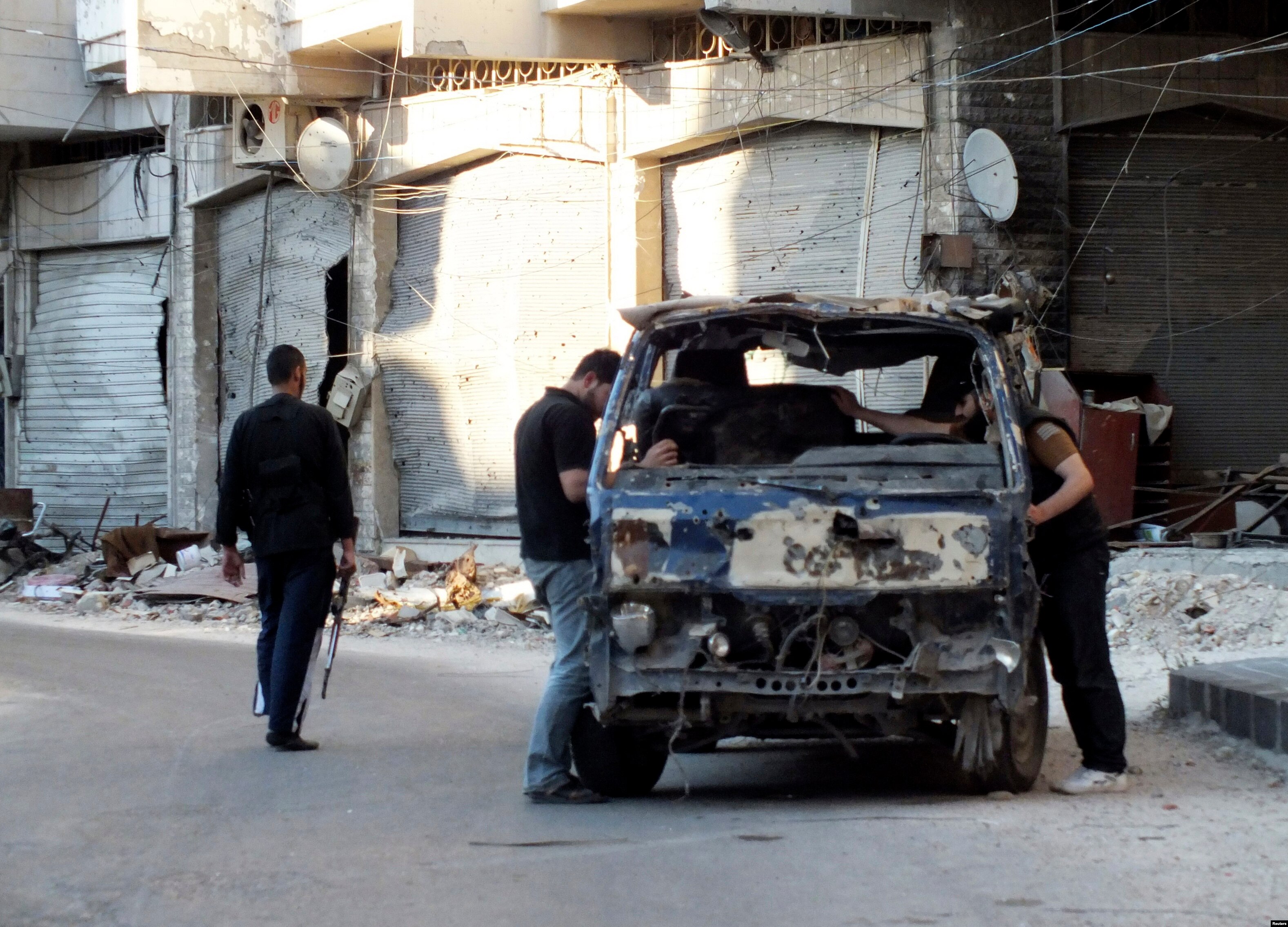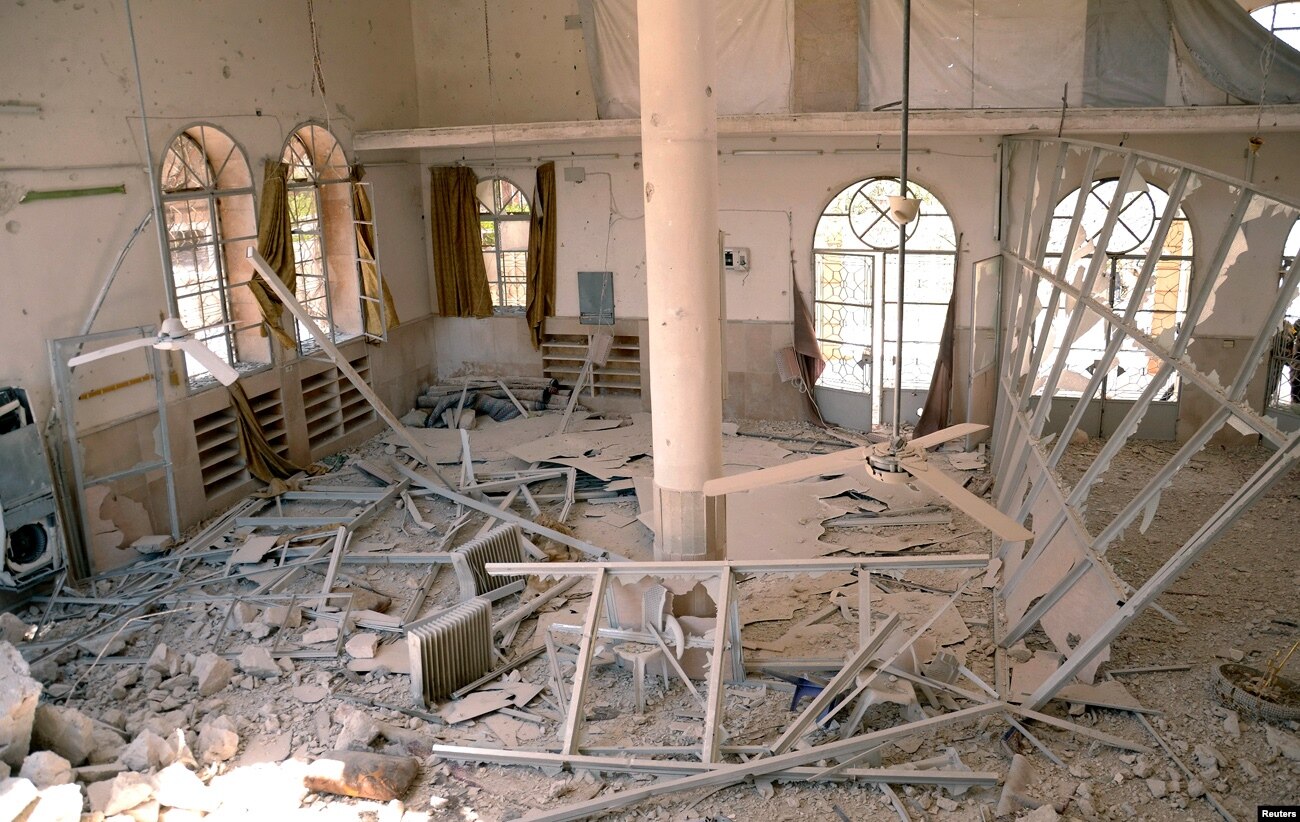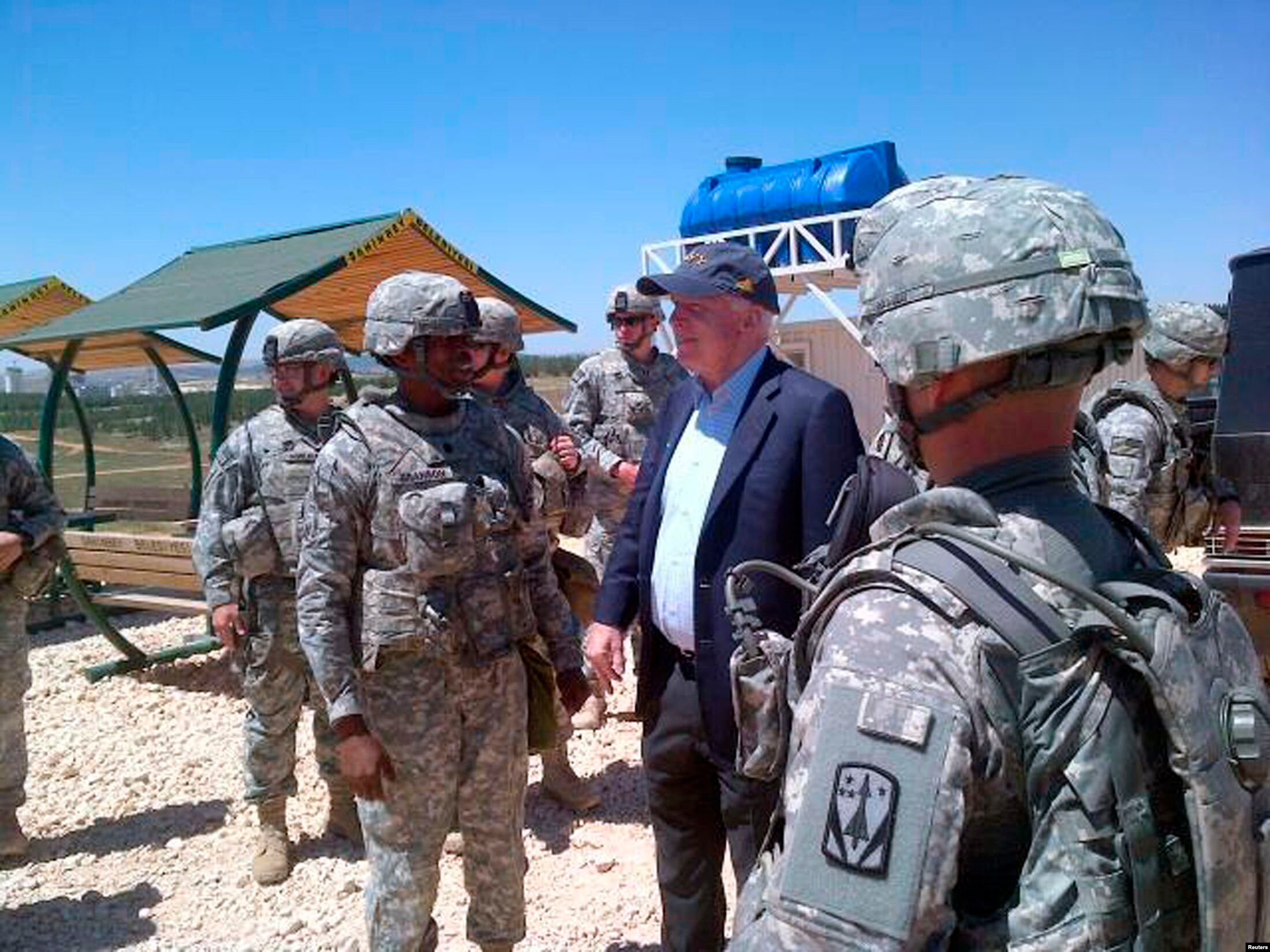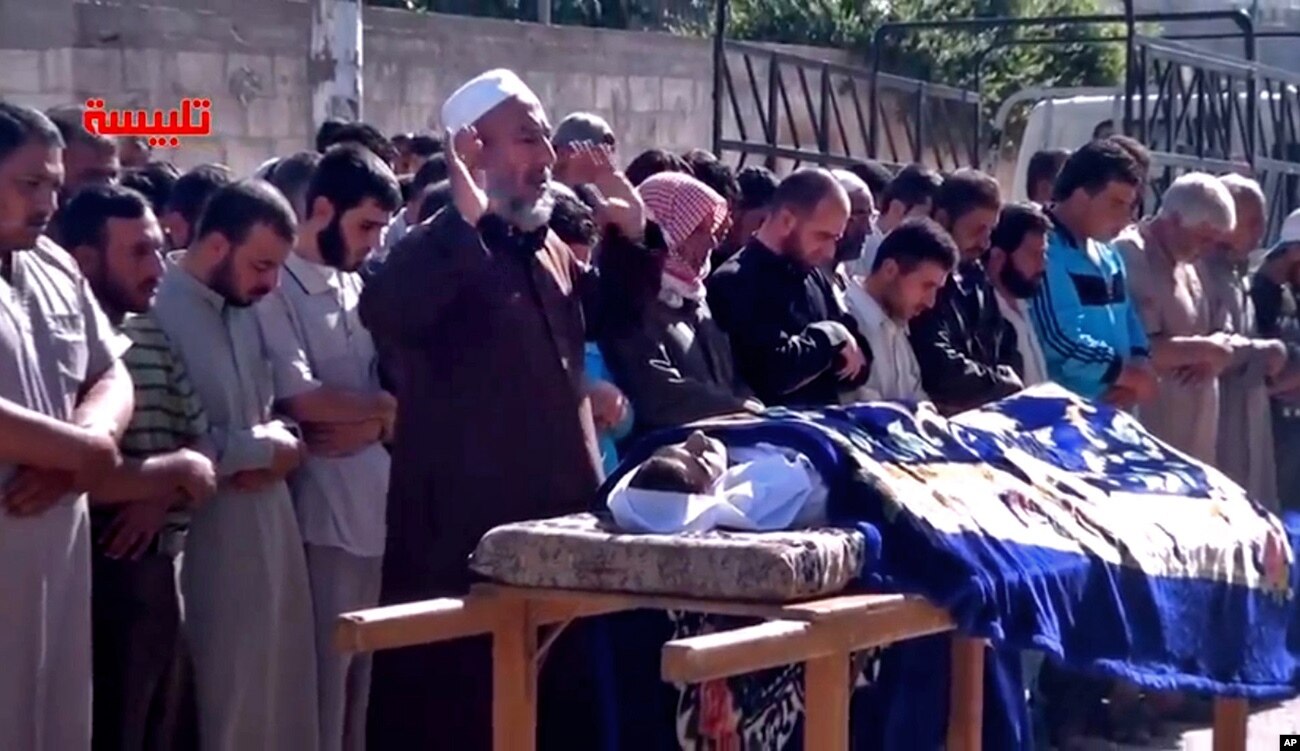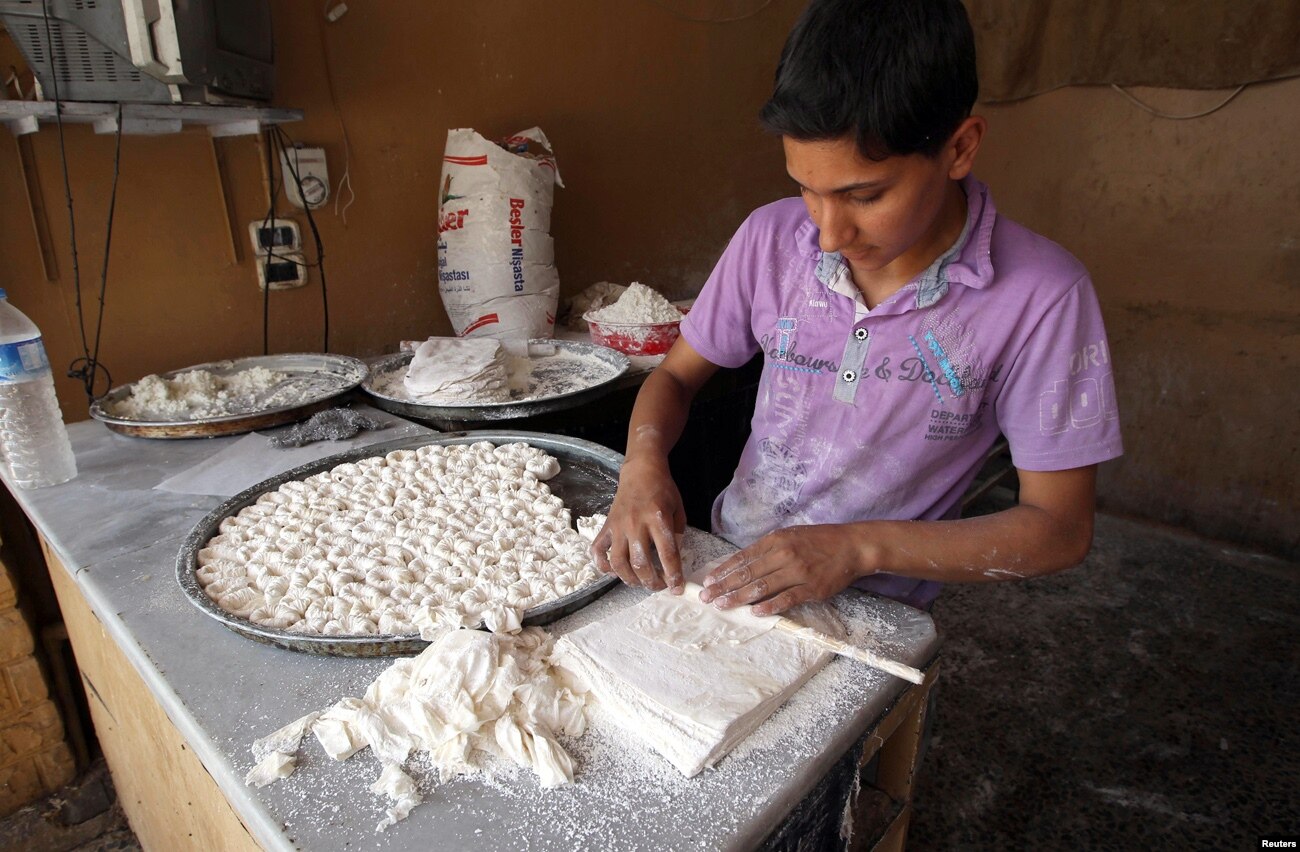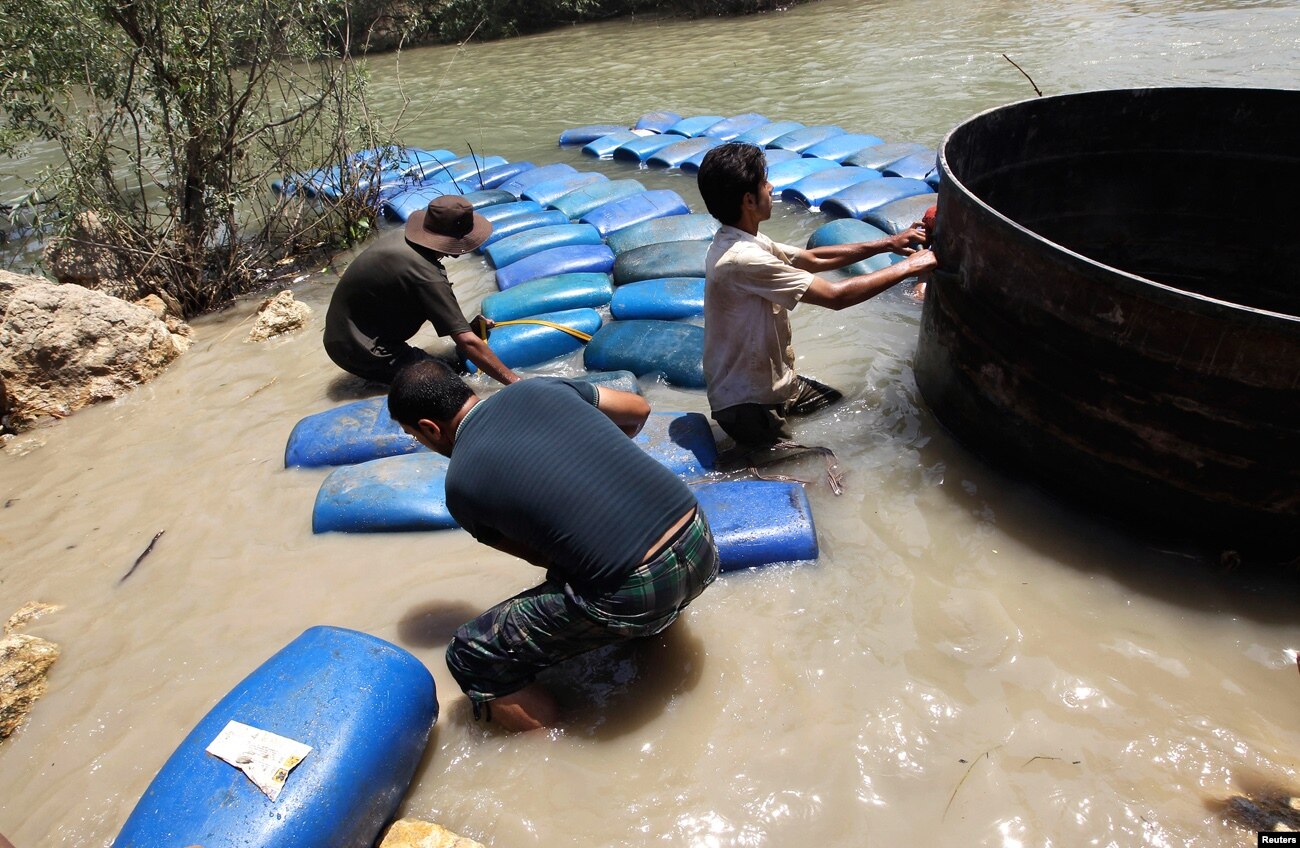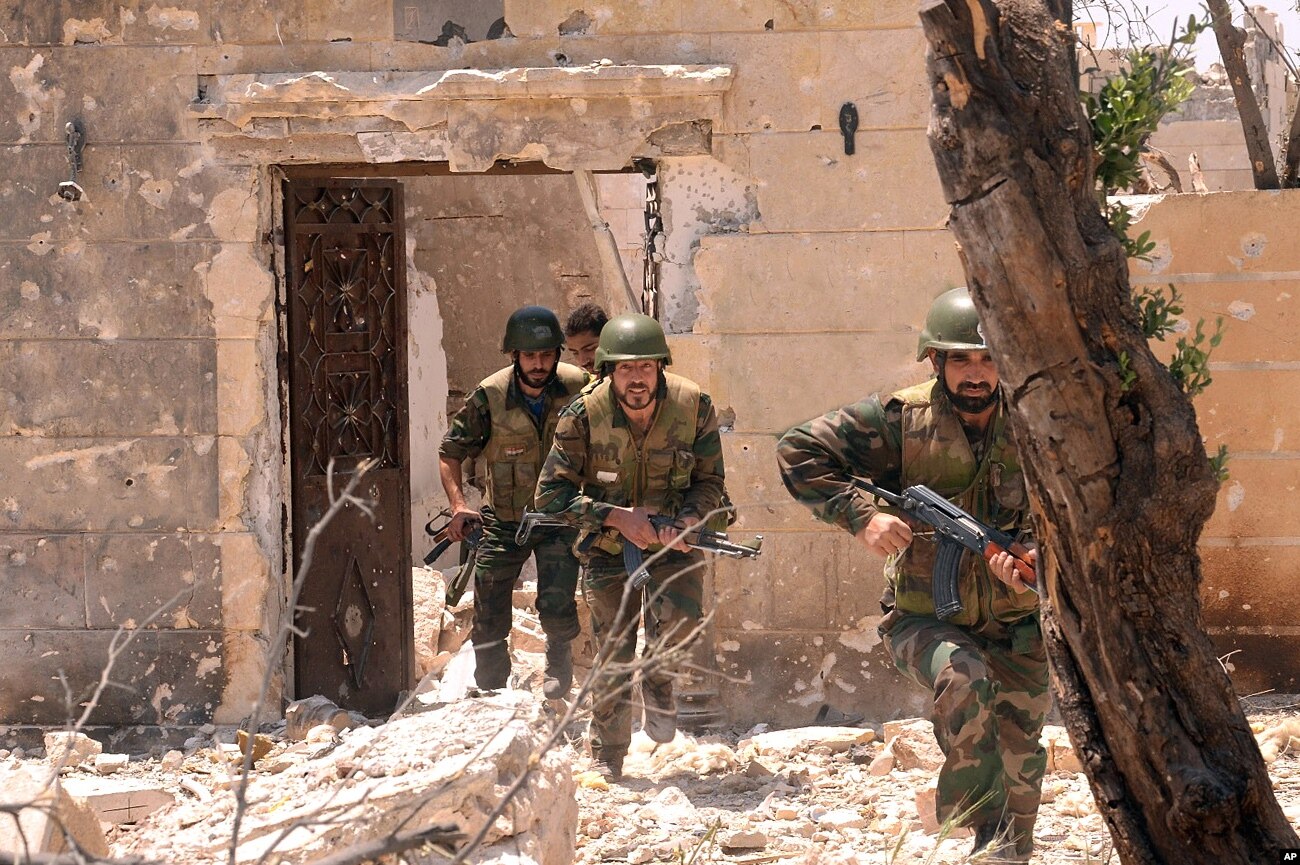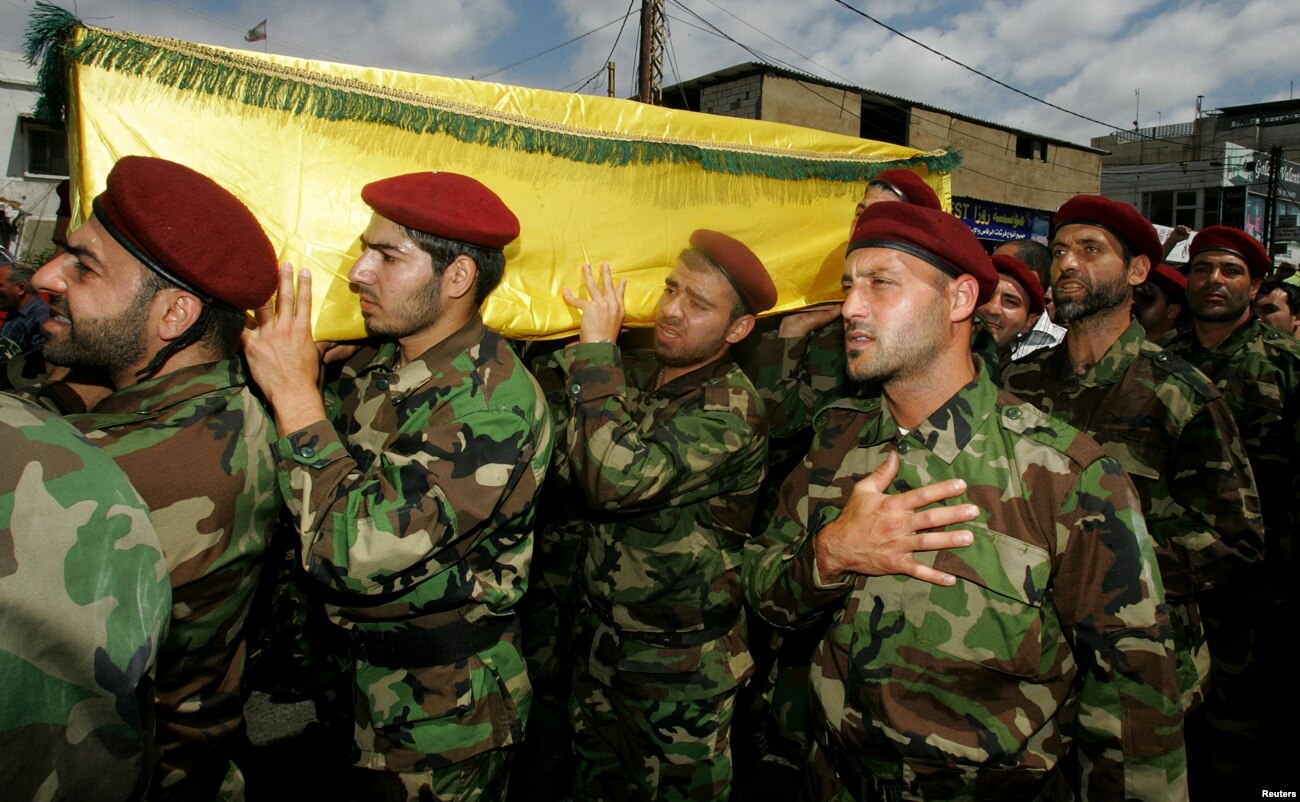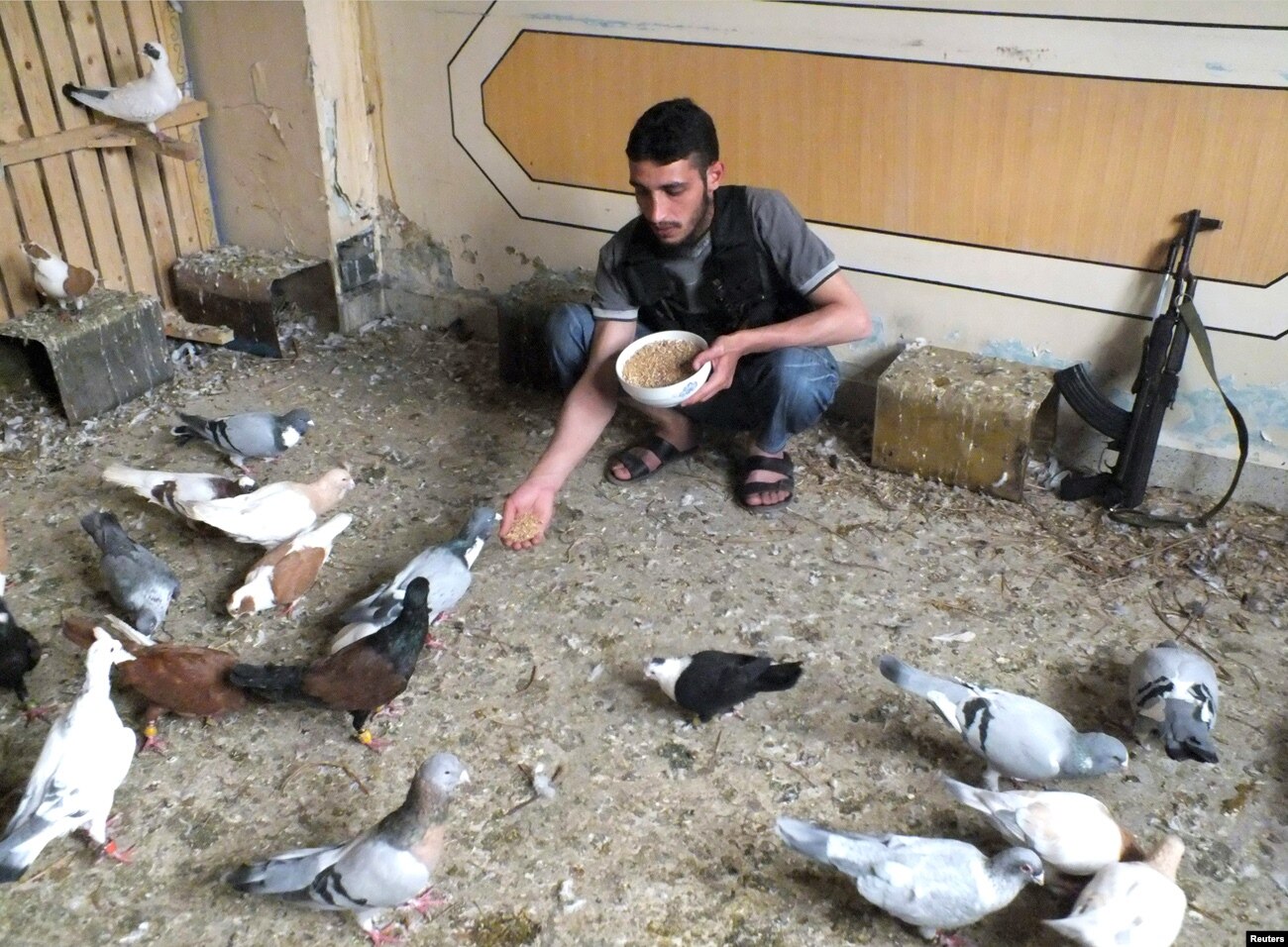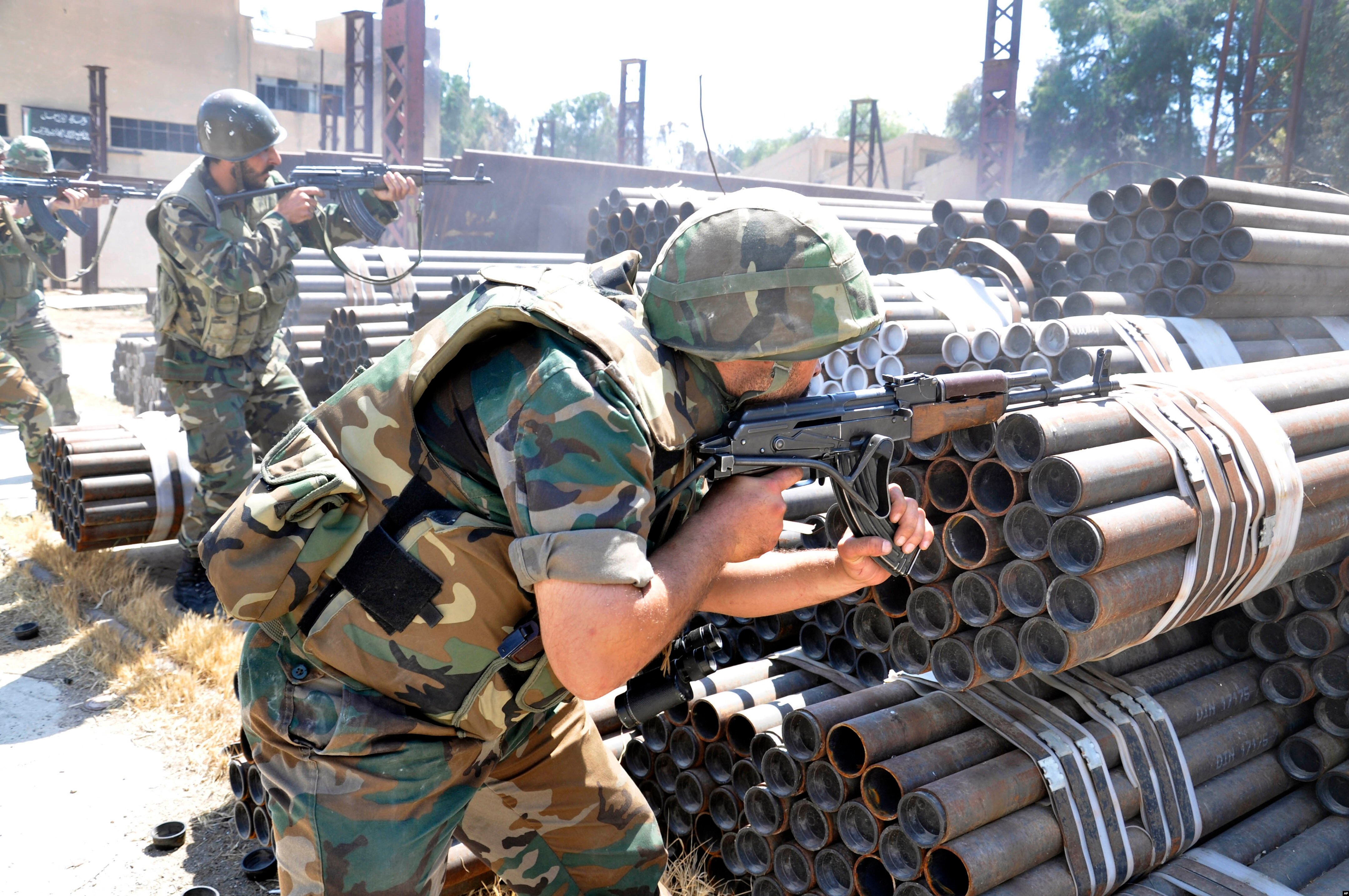Why have the U.S. and Russia decided to work together? Mona Yacoubian, a senior analyst at the Stimson Center in Washington, said there are several reasons.
"The first is this fairly now looks like well-documented use of chemical weapons, which is something that both the United States and Russia have indicated in the past as an area of concern," said Yacoubian. "The second is the growing prominence of jihadists and extreme elements inside Syria and the mounting concerns that even after Assad, Syria could be, really, an arena of jihadist extremism that would threaten certainly not only those in the region, but beyond - including, potentially, Russia."
Russian and U.S. officials want an international conference on Syria to build on the results of a June 2012 meeting in Geneva. That conference called for the transfer of power from President Assad to a new government that would emerge from talks between the Assad government and the opposition.
The latest images from Syria

Men check a damaged vehicle as a Free Syrian Army fighter, carrying his weapon, walks by in the besieged area of Homs, Syria, May 27, 2013.

The inside of a damaged mosque in Dahra Abd Rabbo village, Aleppo, May 27, 2013.

U.S. Senator John McCain meets with U.S. troops in southern Turkey, May 27, 2013. During the trip he made a visit to meet with rebels in Syria. This picture was released on his Twitter account.

Syrians participate in the funeral prayer for Youssef Ghazi al-Sarmani, who was killed in fighting between rebel and government forces, May 27. The logo in red reads "Talbiseh".

A boy makes pastry at a shop in Darkush town, Idlib province, May 26, 2013.

A group of men smuggle diesel fuel from Syria to Turkey hoping to sell it at a higher price, across the Al-Assi River in Idlib, May 26, 2013.

Forces loyal to Syrian President Bashar Assad during clashes against Syrian rebels in Aleppo, May 26, 2013.

Supporters and relatives of Hezbollah members attend the funeral of a Hezbollah fighter who died in the Syrian conflict. The funeral took place in the Ouzai district in Beirut, May 26, 2013.

A Free Syrian Army fighter feeds pigeons in Homs, May 26, 2013.

Forces loyal to Syrian President Bashar Assad take their position during a clashes against rebels, Aleppo, Syria, May 26, 2013. (SANA).
Yacoubian said one problem is that the fate of President Assad remains ambiguous.
"From the perspective of the United States, certainly the Syrian opposition and those allied with the Syrian opposition, Assad should have no role in where this transition goes," said Yacoubian. "From the perspective of Russia in particular and certainly by extension one would say Iran and those that support the Assad regime, there is the notion that there should be some sort of role for Assad, that he would be part of a transition process: what happens and how things go, to be determined."
Yacoubian said Assad's future should be determined by the participants of a new conference, dubbed "Geneva 2."
Questions remain
But there are other issues that need to be resolved before the conference even takes place.
One of those is who will represent the opposition, said Fawaz Gerges from the London School of Economics.
"Outside Syria, the political opposition is mainly represented by the Syrian National Council. Yet you have other oppositional groups based in Beirut, based in Paris, based in Cairo, who also claim to represent the Syrian people," said Gerges. "So the political opposition outside Syria is fragmented, is very diverse - there is no unified political opposition outside Syria."
Gerges said the armed opposition inside Syria is also fragmented and divided.
There are also the questions of who will represent the Assad government - and which regional powers would be invited.
"Also a question mark. And again, it's understood that there is certainly to be a role for Turkey, for the Gulf nations that have played an important role in supporting the Syrian opposition and the armed groups, said Yacoubian. "The big question mark is whether or not Iran would participate. Russia is insisting that Iran should play a role. The United States is very reluctant to cede any sort of role to Iran in these talks."
Russia said Tuesday that it is imperative that Iran be included, despite reservations from some Western nations.
Gerges said that for the conference to be effective, regional powers must participate.
"Russia said Iran must be represented at the conference," he said. "France said Iran cannot participate in the conference because Iran is a threat to regional stability. Well if Iran and Hezbollah are very important, how can you really have a conference without - or how can you exclude Iran which is a pivotal player?
Given the obstacles, many analysts are pessimistic about whether the conference will take place, and if it does, whether any agreement on Syria's political future can be achieved. But as Mona Yacoubian said: "it is important to give diplomacy a chance."
29 May, 2013
-
Source: http://news.google.com/news/url?sa=t&fd=R&usg=AFQjCNHjh4UZ-Ly9HcAy05ZkqqGEC-U7ow&url=http://www.voanews.com/content/obstacles-hinder-international-peace-conference-on-syria/1670146.html
--
Manage subscription | Powered by rssforward.com
